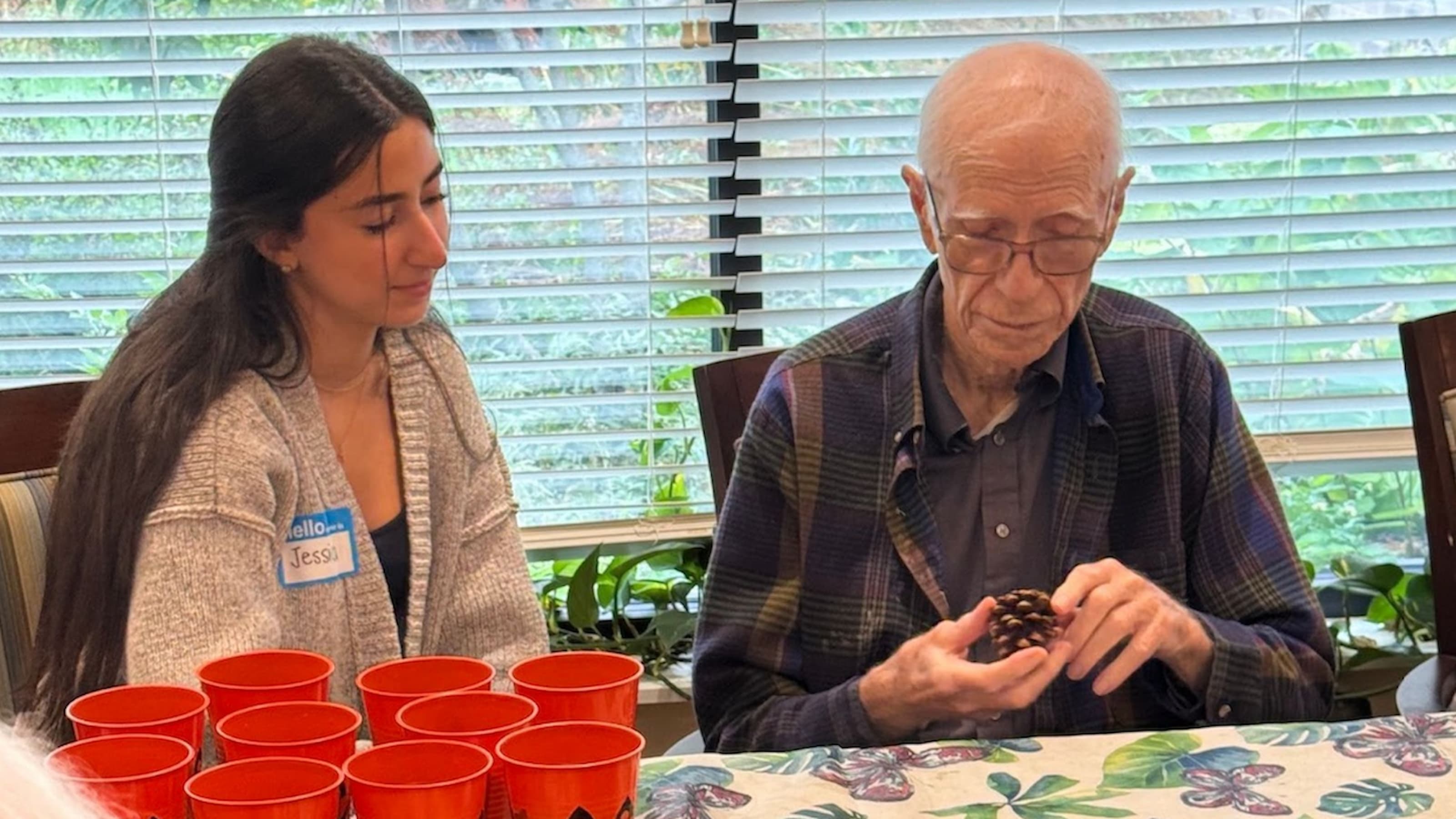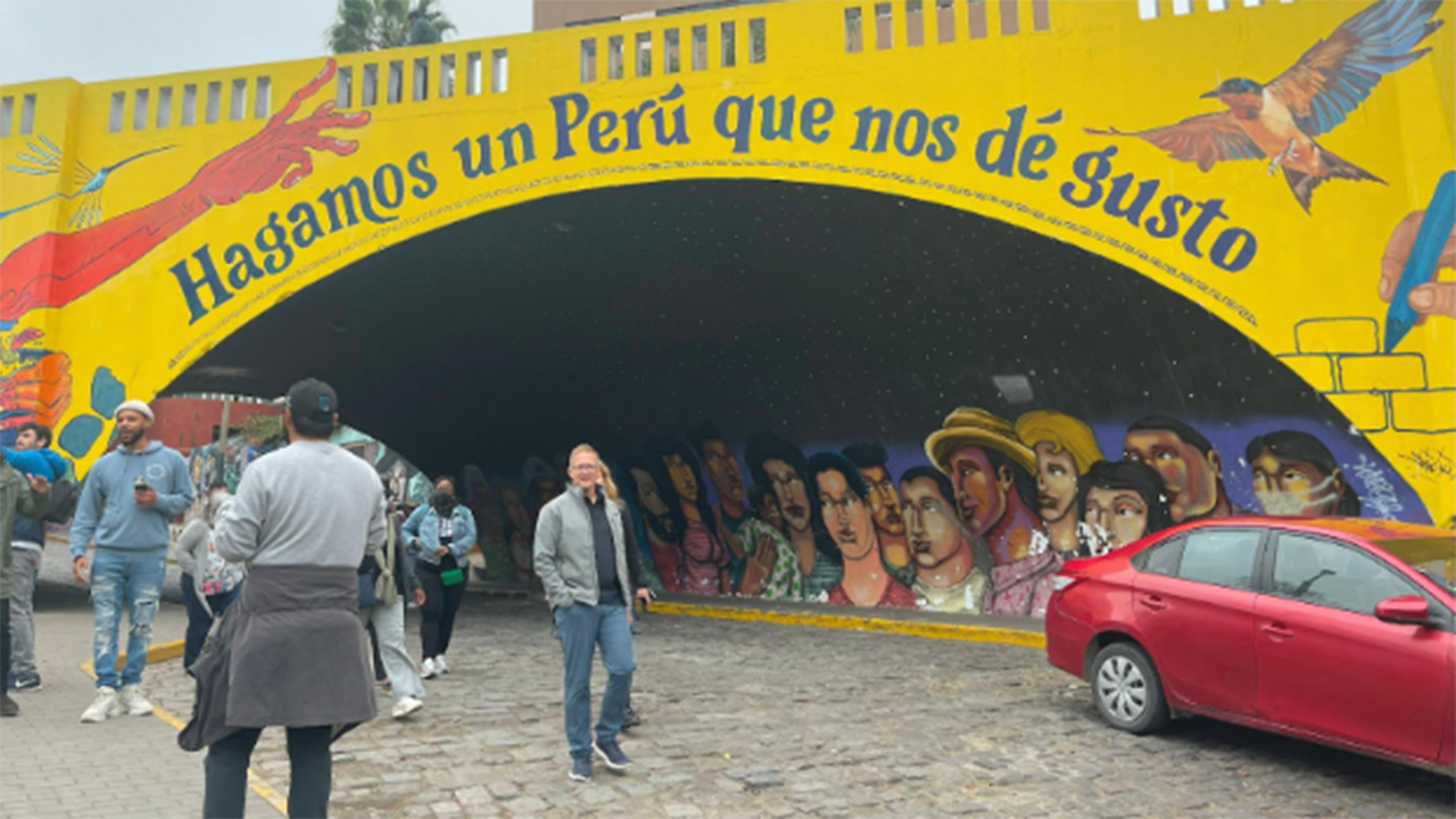Service Course Studies Healthcare Access in Philadelphia and Latin America
“Just Health Care in Developing Nations” focuses on teaching students the theological and ethical skills necessary to perform independent healthcare research and how to best articulate their informed positions.

As coronavirus spreads across the world, senior Roderich Martinez thinks back to last semester, where he learned about the global response to outbreaks of diseases like tuberculosis.
“Now I’m obviously making connections from that class to the recent news about coronavirus,” says Martinez, an interdisciplinary health services major from Bronx, New York. “Countries with fewer resources to deal with the virus have a higher mortality rate.”
The class Martinez took, “Just Health Care in Developing Nations,” offers Saint Joseph’s students the chance to examine healthcare access in Philadelphia and Latin America from public health and ethical perspectives. Cross-listed in theology and interdisciplinary health services, the course hones the theological and ethical skills necessary to both perform independent healthcare research and teaches students how to best articulate their informed positions.
“We took a developing nation model and applied it to the United States, which is quite unique. Usually, it is the ‘first world’ that informs developing nations. We did the opposite,” says Peter Clark, S.J., director of the Institute of Clinical Bioethics, who teaches the course with Ann Marie Jursca Keffer, director of the Faith-Justice Institute. “Students have their notion of healthcare broadened to see that it’s a global issue. They learn the theoretical and then apply it in a very practical way both here and in a developing country.”
But it’s the softer skills — compassion, patience and empathy — that Martinez and his classmates emphasized taking away from the semester. “It helped me understand how difficult it could be for many physicians who are not truly being prepared in medical school for how to feel compassion, solidarity, and other essential values needed to treat their patients,” he says. “The lack of connection with patients can influence the way physicians treat them.”
“This class challenged the way I thought, how I acted, and how I perceived the world around me,” adds Katherine Battaglia ’21, an interdisciplinary health services major from Baltimore, Maryland. “As someone who tends to be rather shy, it forced me out of my comfort zone and taught me how to speak with confidence, manage and work with a team of other students, defend my answers, and most of all how to be a great advocate and leader.”
Students take the class as a service-learning experience, which incorporates three hours of weekly service into the coursework, or as a study tour, which culminates in 10 days of international travel with University faculty. By design, both sections offer an experiential learning backdrop to deepen, challenge and strengthen students’ understanding of course concepts.
“Students learn about social justice issues, experience them first hand and the names and faces of those affected, and come home determined to get to work on them,” says Jursca Keffer. “The course allows students to make a difference with the most vulnerable members of society.”
While abroad in Costa Rica, the itinerary focuses on the country’s health system and nonprofit organizations, as well as the lived experiences of migrants and refugees from other parts of Latin America. In Philadelphia, students serve at Saint Joseph’s community partner organizations, Puentes de Salud, the Mexican Consulate, Mercy Health Promoters and Esperanza Health Clinic.
“Puentes de Salud has worked with service-learning students from Saint Joseph’s for several years now in our education,” says Alexandra Wolkoff, the nonprofit’s director of education. “Students have thoughtfully contributed their time and talents in working with youth and in doing so, have been a strong support to our elementary and middle school programs. The fact that this work is integrated into a concurrent course at Saint Joseph’s builds in opportunities for students to reflect on their experiences working with us and to connect it with related academic learnings."
“This class challenged the way I thought, how I acted, and how I perceived the world around me."
Katherine Battaglia ’21
“One thing I took away from the study abroad trip, that I’d apply to the healthcare context in Philadelphia, is the recognition of how far immigrant and refugee communities have come, while also creating a dialogue around how much work needs to be done,” says Michael Fontana ’20, a biology major from Ellicott City, Maryland. “We met a Nicaraguan physician who had fled to Costa Rica after her family was targeted by the government for offering medical aid to protestors. Now she is unable to practice medicine in their current healthcare system, which doesn’t recognize her medical degree from another country.”
The course is one part of the Institute for Clinical Bioethics’ academic work. Fellows of the institute are tackling chronic kidney disease in Nicaraguan sugar plantations, access to prescription eyeglasses in El Salvador, and developing a palliative care program in Latin America. The experiential learning opportunities are intended to help students become ethical leaders with active listening skills who can develop holistic, community-driven solutions to healthcare problems.
“The lessons I learned both in the classroom and in Costa Rica I will definitely try to carry with me the rest of my life,” says Battaglia.



